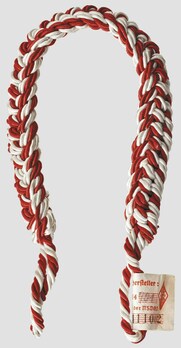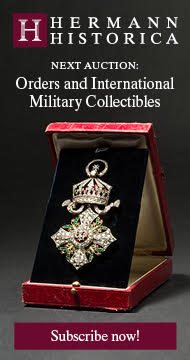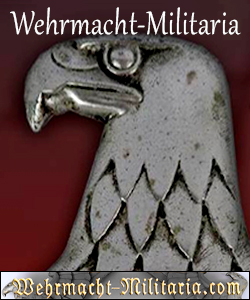DJ Jungenschaftsführer Lanyard
SKU: 32.GOR.03.01.05.010
Estimated market value:

Estimated market value:
Attributes
History
Lanyards in the Hitler Youth were introduced in 1933. They initially indicated both grade and function. After 1936, rank and duty position could differ. Shoulder straps were used to indicate rank, while lanyards indicated duty position. It was a common occurrence, especially during the war, for a member to wear the lanyard of a higher rank, as they assumed the duty position without having been promoted to that rank.
Lanyards were generally worn from the left shoulder to the left breast pocket. However, since members of the DJ (Deutsches Jungvolk, German Youngsters) didn’t wear a shoulder strap on the left shoulder, a button had to be added so that the lanyards could be attached.
Specifications prior to 1936 are unknown. However, starting in 1936, lanyards were made from intertwined coloured cords, with 35 loops.
The attributes of individual lanyards will vary due to manufacturing.
Jungenschaftsführer wore a red and white lanyard. Regulations stated it was to be knotted into a loop at each end and should have a metal carbine hook at one end.
Jungenschaftsführer wore their lanyard in a different way than all other ranks. It was worn from the button of the left breast pocket to the third button on the front of the shirt. This was the button at around the same height as the breast pocket.
Originally, Jungenschaftsführer wore a lanyard in their “Landesfarben” (state colours). This was changed to a lanyard in Oberbann (a district system) colour in a regulation from September 15, 1933. In 1936, with the discontinuing of the Oberbann colours, the red and white lanyard was introduced.
Kameradschaftsführer in the HJ and Mädelschaftsführerinnen and Jungmädelschaftsführerinnen in the BDM wore an identical lanyard.

Versions
$100 USD
300mm


Comments
Sign in to comment and reply.


Scroll Top